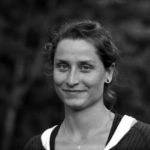| TITLE OF PAPER | Who is a Biologist – Exploring Students’ Identity Formation in Higher Biology Education |
|---|---|
| AUTHORS NAME | Katerina Pia Günter |
| AFFILIATION | Centre for Gender Research |
| UNIVERSITY / INSTITUTE | Uppsala University, Sweden |
| katerina.gunter@gender.uu.se | |
| ABSTRACT |
Educational spaces in natural sciences and biology are considered spaces for progression and (in)dependent knowledge (re)production, spaces in which change is discussed and in themselves constituting spaces for change, spaces that are strictly separated from perspectives from social sciences or humanities. However, spaces and practices within higher science education are subject to feminist critique, which I follow in this project exploring identity formations of undergraduate biology students at universities with Scandinavian, Continental and Anglo-Saxon education systems. The main question is how the boarder point of education, student-teacher interactions and discourses in teaching situations alter the becoming “a biologist” of students in a community of “doing” and learning biology. Instead for staying within national boarders and binary perspectives on students/teachers, knowers/learners, female/male students, the aim is to allow broader, intersecting and transnational perspectives on higher science education. |
| BIOGRAPHY |
Coming from a working-class background and the Black Forest region in Germany, I was the second in my family to graduate from high school. I studied biology at Heidelberg University, interrupted my Bachelor studies with a voluntary ecological year in an environmental school working with children and after resumption of my studies I taught in undergraduate courses until my graduation I developmental biology and toxicology. After my Bachelor’s, I continued with a Master’s in biology at Freiburg University, Germany, but before graduation decided to take part in an ERASMUS exchange with Uppsala University. After half a year and since I was intrigued by the educational system, I changed program to Uppsala entirely and graduated in plant systematics. In September 2017, I started my PhD at the Centre for Gender Research at Uppsala University on biology students’ identify formation in higher biology education. |
| CO-AUTHORS |
none |
| KEYWORDS | Higher Biology Education, Identity, Discourse Analysis, Feminist Perspective |
| STREAM | 4. Along and across Borders: Proper Objects and Intersectionalities, 7. Exceeding the Actual: Visions and Spaces for Change |
| COMMENTS | |
| PICTURE |  |
| Webpage | |
Home »

























